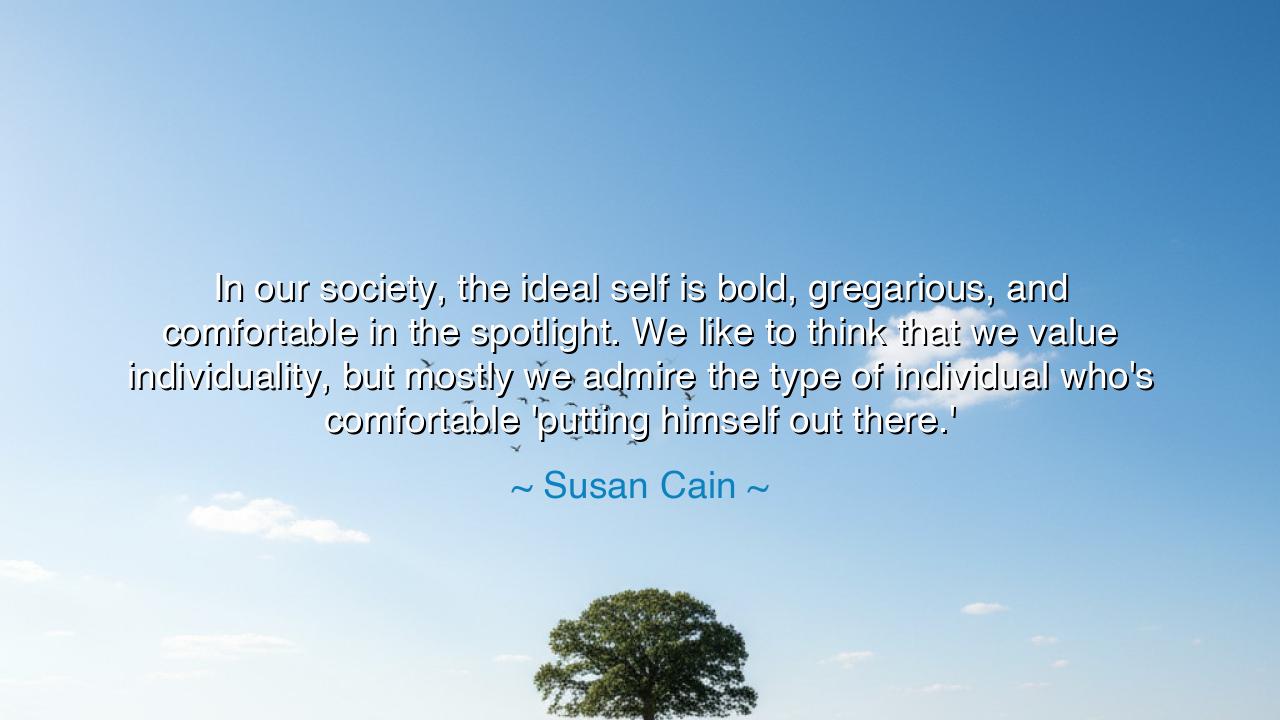
In our society, the ideal self is bold, gregarious, and
In our society, the ideal self is bold, gregarious, and comfortable in the spotlight. We like to think that we value individuality, but mostly we admire the type of individual who's comfortable 'putting himself out there.'






Hear the voice of Susan Cain, who pierced the illusions of the modern age with these words: “In our society, the ideal self is bold, gregarious, and comfortable in the spotlight. We like to think that we value individuality, but mostly we admire the type of individual who’s comfortable ‘putting himself out there.’” In this observation lies a mirror held up to our culture, one that claims to honor the uniqueness of every soul, yet in truth bows down before the loud, the visible, the ever-present voice that thrives in the crowd.
Cain, author of Quiet, drew from her own life as one who walked the path of the introvert. She saw how classrooms rewarded the hand raised often, not always the thought spoken wisely; how workplaces honored the speaker at the podium more than the thinker in the corner; how politics and entertainment shaped the very idea of success around charisma, extroversion, and public ease. Thus she uncovered the hidden law of our society: that though we proclaim love for individuality, we have crafted an ideal self cast in a narrow mold—the one who shines beneath the spotlight.
The ancients, too, knew of this tension. In Athens, the orator ruled. Those who spoke with power swayed assemblies, won trials, and commanded armies. Yet Socrates, the greatest philosopher of that city, mistrusted the glitter of rhetoric. He taught that truth was not found in the applause of the many, but in the quiet dialogue of souls. Still, Athens condemned him, proving Cain’s point: even in the birthplace of philosophy, the individual most admired was the one who could dazzle the crowd, not the one who sought truth in silence.
Consider, by contrast, the life of Albert Einstein. He was no fiery orator, no lover of crowds, but a man who found his strength in solitude. In the silence of his mind, the theory of relativity was born—a vision that reshaped the universe itself. Had society judged him only by his ease in the spotlight, he might have been dismissed as awkward, quiet, unfit to lead. Yet history testifies: greatness often dwells in the still waters, not in the roaring streams.
Cain’s words remind us that the bold and gregarious are not the only forms of strength. The thinker who reflects before speaking, the creator who toils unseen, the listener who hears what others overlook—these, too, are forms of individuality, no less precious than the performer on the stage. But when a society worships only the one who “puts himself out there,” it risks silencing the wisdom of the quiet, and in that silence, it loses treasures it cannot imagine.
The lesson is clear: let us broaden our vision of the ideal self. Admire the bold, yes, but also the contemplative. Honor the speaker, but also the listener. Teach our children that leadership does not always roar; sometimes it whispers, sometimes it writes, sometimes it builds in silence what others will later see. To honor all forms of individuality is to strengthen the whole, for a society that silences its quietest voices blinds itself to half its wisdom.
What, then, must we do? Resist the temptation to prize only the spotlight. Seek out the thoughts of those who do not clamor to be heard. Create spaces where reflection is honored alongside expression, where the quieter soul is not pushed aside, but invited in. And in your own life, do not despise your nature if it is not loud, for every individual has their own strength. The world does not thrive only on performers—it thrives on thinkers, creators, healers, and dreamers, many of whom dwell in the quiet.
Thus remember: the true ideal self is not one mold, but many. Boldness and stillness, speech and silence, gregariousness and solitude—all are threads in the great tapestry of humanity. Susan Cain’s words shine as a warning and a promise: beware a culture that praises only the loud, and build instead a society where every individual, whether in the shadows or in the spotlight, can contribute to the progress of all.






AAdministratorAdministrator
Welcome, honored guests. Please leave a comment, we will respond soon